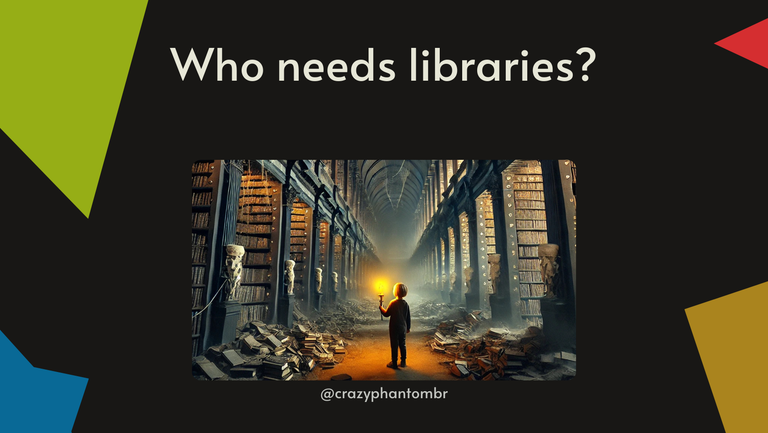
To my ever-loving friends in the HiveLearners community, my warmest regards!
We live in a society that demands the digitalization of products and services. This has been encouraged since the pandemic, and marks a revolution in social relations and market relations. We feel the pressure for innovation in all sectors and the industry has taken advantage of this to sell technological solutions, such as digital books, called e-books.
Is this the end of traditional books?

The first digital book readers were launched in 2006 and 2007 by Sony and Amazon, so we can say that at this moment the competitor to the traditional book was born. Since then, technology has converged and standards have been established. Currently EPUB seems to be widely accepted, except for the Amazon Kindle, which makes the device a self-excluded device.

The first Kindle, released on November 19, 2007 / Tecmundo
Of course, with the evolution of smartphones, today we have screens large enough and comfortable enough to read on our own cell phones. Still, we have nostalgic people who prefer to use "digital book readers". What makes these people a collection of young people, after all, nostalgia is really about defending printed books.
Here in Brazil, we have been through some critical situations in this regard. The first of these was the closure of several bookstores, which filed for bankruptcy, from several different companies. I cite Saraiva and Livraria Cultura as examples. These big brands and leaders in e-commerce book sales agonized over their physical stores to the point where it became unsustainable.
Another issue that arose with the pandemic was the acceleration of the adoption of digital teaching materials by public education. For example, I have access to a digital library whose subscription is paid for by my educational institution, so that I can have access to the books that support my studies. This movement has grown and has attracted attention due to its low cost and the fact that it does not require a library space and all its maintenance (not to mention the constant need for renovation and expansion)
 Biblioteca Pública do Paraná / Source
Biblioteca Pública do Paraná / Source
In my opinion, with the growing demand for digital books, the great refuge for physical works will be public libraries, maintained by government entities. They will be responsible for maintaining the history of literature in its original form, and will serve as a reference collection for book lovers.
We need to protect books.
The search for the source of knowledge will never be abandoned, and all we can do is adapt, and like everything in life, wait for the revolution that will change the way we interact with the world. The digital world is coming with force, and denying this revolution is denying our own existence!
What do you think?


Aos meu sempre amigos da comunidade HiveLearners, minhas melhores saudações!
Vivemos em uma sociedade que demanda pela digitalização de produtos e serviços. Isso tem sido incentivado desde a pandemia, e marca uma revolução nas relações sociais e nas relações de mercado. Sentimos a pressão pela inovação em todos os setores e a indústria tem se aproveitado disso para vender soluções tecnológicas, como por exemplo os livros digitais, chamados de e-book.
Será o fim dos livros tradicionais?

Os primeiros leitores de livros digitais foram lançados em 2006 e 2007 pela Sony e Amazon, então podemos dizer que neste instante nasceu o concorrente do livro tradicional. De lá para cá a tecnologia convergiu e padrões foram estabelecidos. Atualmente EPUB parece ser amplamente aceito, exceto pelo Amazon Kindle, o que torna o aparelho um auto-excluído.

O primeiro Kindle, lançado em 19 de novembro de 2007 / Tecmundo
É claro que com a evolução dos smartphones, hoje temos telas grandes o suficiente e confortáveis o suficiente para realizarmos leitura em nossos próprios aparelhos celulares. Ainda assim, temos pessoas nostálgicas que preferem o uso de "leitores de livros digitais". O que faz dessas pessoas uma coletânea de jovens, afinal nostalgia mesmo é defender o livro impresso.
Aqui no Brasil passamos por algumas situações críticas neste tema. A primeira delas foi o fechamento de diversas livrarias, que pediram falência, de diversas companhias distintas. Cito como exemplo Saraiva e Livraria Cultura. Essas grandes marcas e líderes em venda de livros pelo e-commerce agonizaram com suas lojas físicas até o limite, em que se tornou insustentável.
Outra questão que surgiu com a pandemia foi a aceleração da adoção de material didático digital por parte da educação pública. Eu, por exemplo, tenho acesso à uma biblioteca digital cuja assinatura é paga pela minha instituição de ensino, para que eu possa ter acesso aos livros que dão suporte aos meus estudos. Esse movimento tem crescido e chama atenção pelo custo baixo, e pela dispensa da existência de um espaço para biblioteca, e toda sua manutenção (sem falar da necessidade constante de renovação e ampliação)
 Biblioteca Pública do Paraná / Source
Biblioteca Pública do Paraná / Source
Na minha opinião, com a demanda crescente por livros digitais, o grande refúgio para as obras físicas serão as bibliotecas públicas. mantidas pelos entes governamentais. Elas serão responsáveis por manter a história da literatura em sua forma original, e servirão como acervo de consulta para os amantes dos livros.
Precisamos proteger os livros.
A busca na fonte do conhecimento nunca será deixada de dela e o que nos resta é nos adaptar, e como tudo na vida, esperar pela revolução que mudará nossa forma de interagir com o mundo. O mundo digital está vindo com força e negar essa revolução é negar a nossa própria existência!
E você o que acha?


Posted Using INLEO




